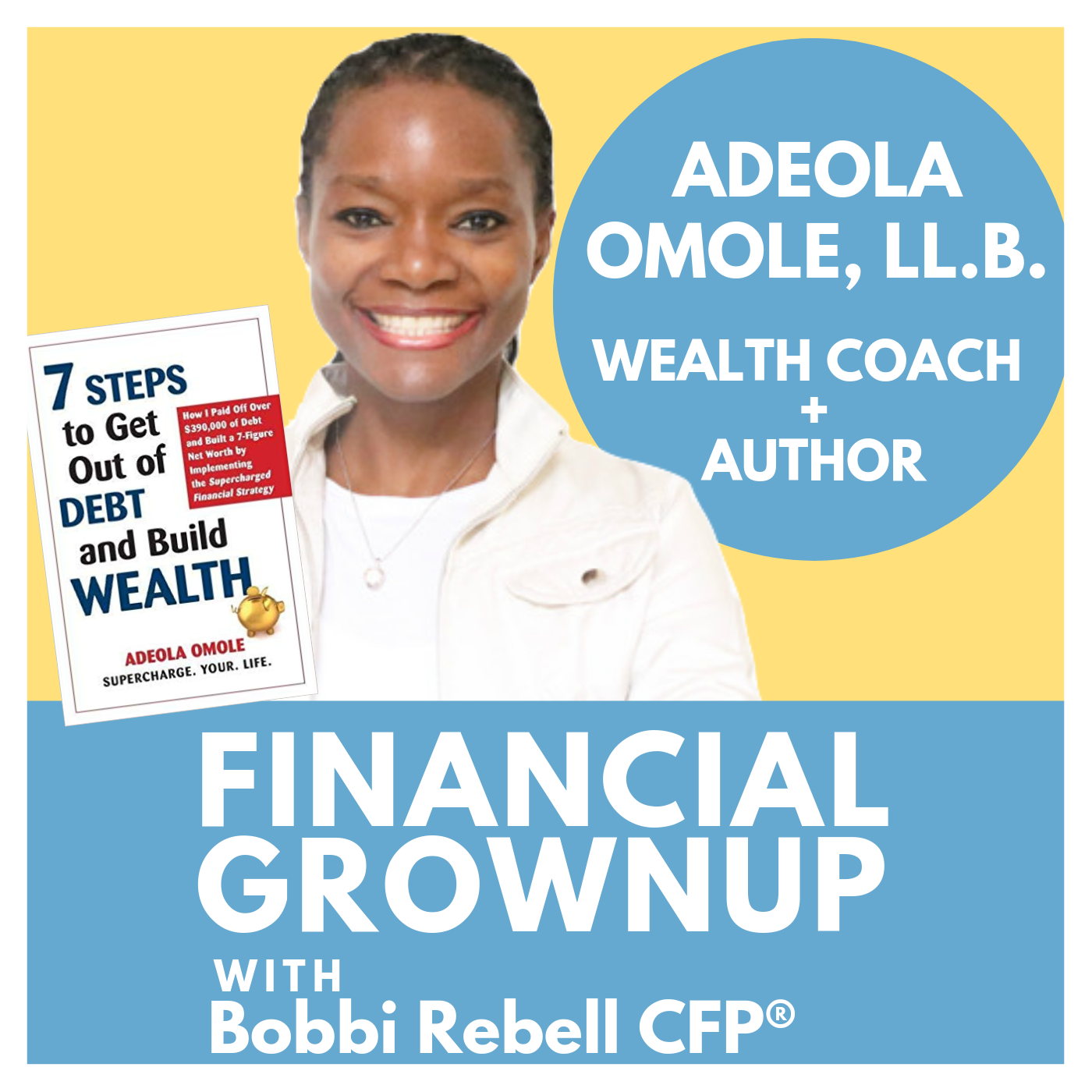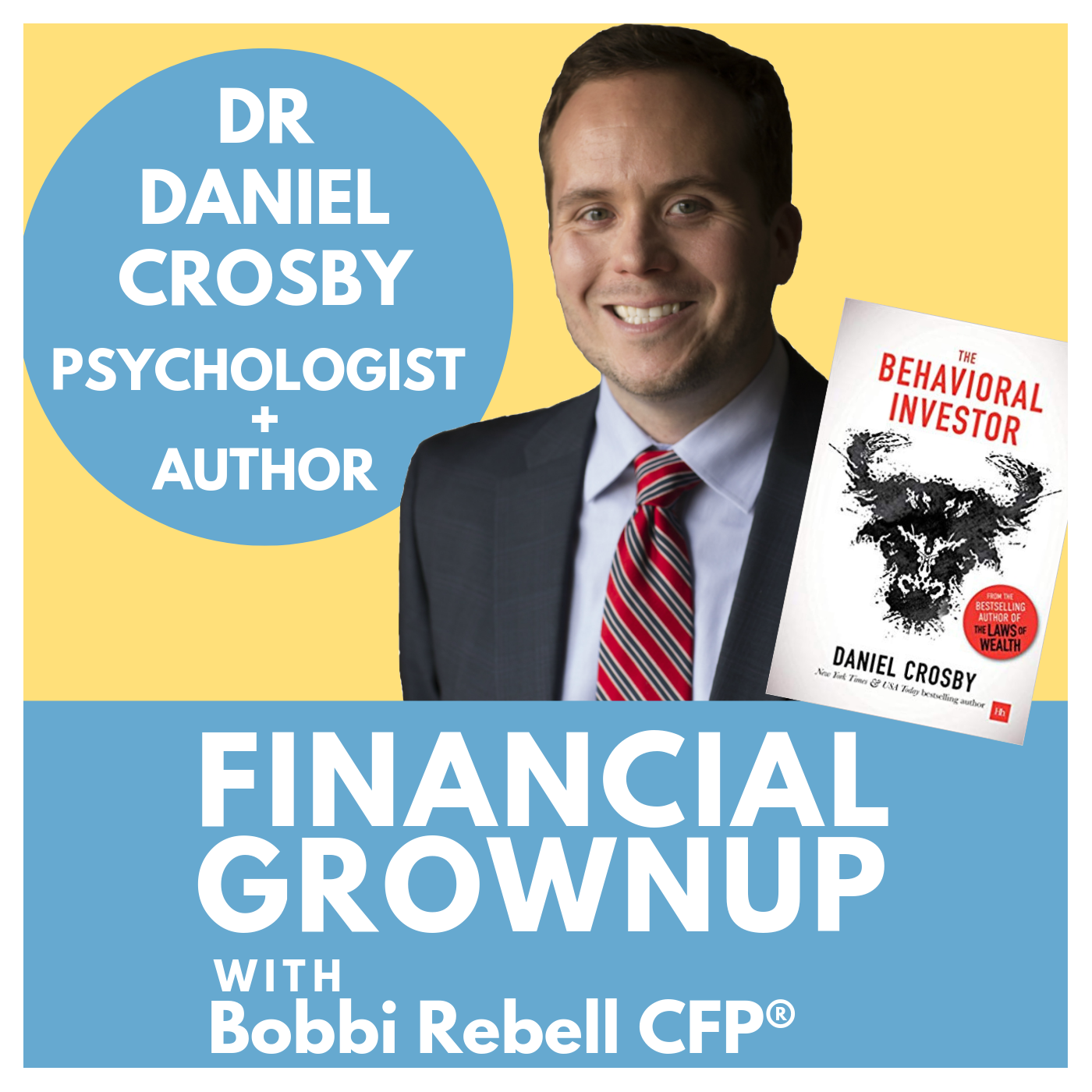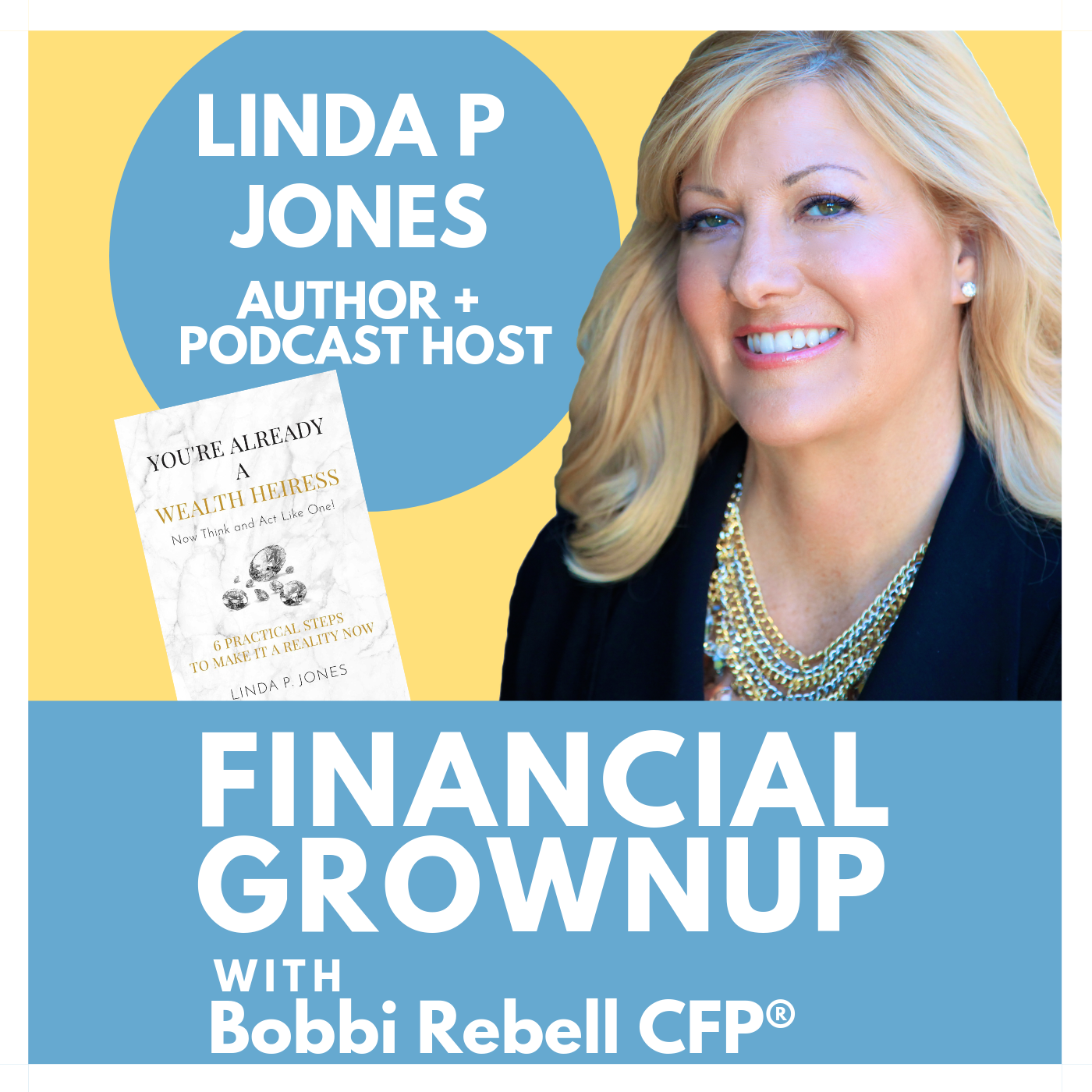Transcription
Jean Chatzky:
We were talking about how much we charge for speeches and creating content for various people and various companies. In the last year, I've become much more conscious of sharing these kinds of numbers with people in my circle, because this is the way we are all going to get paid more.
Bobbi Rebell:
You're listening to Financial Grownup, with me, certified financial planner, Bobbi Rebell, author of How to be a Financial Grownup. And you know what? Being a grownup is really hard, especially when it comes to money. But it's okay, we're going to get there together. I'm going to bring you one money story from a financial grownup, one lesson, and then my take on how you can make it your own. We've got this.
Bobbi Rebell:
That was NBC today show financial editor Jean Chatzky, host of the Her Money podcast, and author of countless bestselling books, most recently Age Proof. The clip is part of the lesson that she will share with us, in just a few minutes, about getting paid more. But first, we are going to start with her money story, which has to do with a rocky time in Jean's life, and how she found financial security. Here is Jean Chatzky.
Bobbi Rebell:
Jean Chatzky, financial grownup, welcome to the program.
Jean Chatzky:
Thank you Bobbi, so happy to be here.
Bobbi Rebell:
Yes, and happy 2018, and happy almost 100 episodes of Her Money. Congratulations.
Jean Chatzky:
Thank you, and congratulations on the launch of this podcast, I think it's so much fun.
Bobbi Rebell:
Thank you, it's been quite a year. I remember I think my second time ever as a guest was on Her Money, so it holds a very special place in my heart, and it's really just wonderful content that you're bringing to people, so thank you for that.
Jean Chatzky:
Sure.
Bobbi Rebell:
And everyone of course should check out Her Money.
Bobbi Rebell:
But you have brought with you a really important and compelling money story. Do tell.
Jean Chatzky:
I feel like I was thrust into the real world of financial grownups when I got divorced.
Bobbi Rebell:
And how old were you?
Jean Chatzky:
I was about 40. I mean that's when it hit, and it hit at a time when a lot of things hit. I lost my dad, who had been sick for a while. I got fired from Money Magazine, I mean they didn't actually say fired, but that's what happens when you get laid off. I had to take a whole new look at my life, knowing that I was going to be doing it on my own, knowing that I was going to be a freelancer rather than an employee, starting a business, maybe hiring my own employees.
Bobbi Rebell:
Which you have now.
Jean Chatzky:
Which I have now. And all of it caused me to really take a hard look at the inflows and outflows of money, at what I really needed. And most importantly, at what I needed to meet my savings goals, because when I got divorced, I started saving money like crazy, because nothing else made me feel as safe, and I was not feeling particularly safe in the world at that point.
Jean Chatzky:
And so it took the form of doing everything from buying a smaller house than I could really afford, and just shoving more money every single month into savings, to starting new college accounts for my kids, because the plan that my ex-husband and I had about how we were going to pay off the mortgage and then use that money to pay for college had gone out the window, to really taking a closer look at all of the bills every single month, and seeing what was not necessary.
Bobbi Rebell:
And you weren't doing that before?
Jean Chatzky:
I was doing it, but I wasn't doing it in such a diligent and type A way. I was saving up to the guidelines that I give people, but I just wanted to do more. That's what made me feel safe, was not shoes in the closet, it was just money in the bank.
Jean Chatzky:
So my lesson is a little bit different from that story, but no matter what stage you're at in life, we all need help. And I think asking for help, which I did during that period in my life, from financial advisors, from lawyers, from estate planners, from friends who had been through it before me. We've got to ask for help to figure out how to chart the right course at the right time.
Jean Chatzky:
And I thought about this lesson because I had lunch yesterday with Stacey Tisdale, who is another financial expert/journalist/colleague, who you should absolutely have on this show.
Bobbi Rebell:
Absolutely.
Jean Chatzky:
And we were talking about how much we charge for speeches and creating content for various people and various companies. In the last year, I've become much more conscious of sharing these kinds of numbers with people in my circle, because this is the way we are all going to get paid more. And doing this feels to me like we are really helping each other.
Bobbi Rebell:
Give me a money tip, something that you are using yourself, with your family, that is really making a difference, that people can implement right now.
Jean Chatzky:
Going back to what I told you about saving like a crazy person around the time of my divorce, I save automatically for every goal, even the small ones.
Bobbi Rebell:
Do you separate different accounts you mean?
Jean Chatzky:
I separate. I am a huge believer in mental accounting for which Richard Thaler just won a Nobel prize. I find when you have different pools of money for different things, it's easier to reach your goals. I've got a big trip coming up, I've got that money isolated. I'm saving ahead of time, and it means I will not be looking at big credit card bills that I don't have money to pay off, after that trip happens.
Bobbi Rebell:
And it also takes away the guilt of feeling like maybe I shouldn't treat myself to this trip, because the money is there for that.
Jean Chatzky:
Absolutely. And it doesn't matter if it's a trip, or a handbag, or a spa weekend, or college. Just knowing this is the job that this money has been set aside to do is really, really helpful.
Bobbi Rebell:
Great advice, thank you Jean Chatzky.
Jean Chatzky:
Sure.
Bobbi Rebell:
I love that advice about pricing. Information is power when it comes to pricing your services, especially as we seem to move more and more into the gig economy, not to mention side hustles.
Bobbi Rebell:
So I'm going to just expand on Jean's great advice about knowing what you're worth in the market and getting it. Financial grownup tip number one, get social. Think of others in your field not as the competition, but as your teammates, your allies. Spend time with your people. This can be in person, like Jean does, or even online. There are countless groups these days, especially for example on Facebook, where you can ask people specifically what do they charge?
Bobbi Rebell:
They may not say it publicly in the App itself, but a lot of people are willing to DM you with some actual numbers and helpful tips about what you can and should be charging.
Bobbi Rebell:
Financial grownup tip number two, do not work with clients that don't value your work, aka don't pay you enough. Good clients want you to stay in business, that can't happen if you are in a race to the bottom with price. If someone does not want to pay the right price to work with you, odds are this is not the last argument you're going to have with them. If they truly have a budget that is still too small, see if you can limit the scope of what you're doing. If you believe they're going to grow into a client that can eventually afford you, make a judgment call. But make it clear that you are working below rate, and that the numbers are unsustainable and need to grow when their business grows.
Bobbi Rebell:
If it really can't work, consider referring them out to someone who does work with people with smaller budgets. They will appreciate it.
Bobbi Rebell:
Thank you all for listening to this episode of Financial Grownup. We are loving all the amazing feedback. Please subscribe, share, rate, review. It matters, and is truly appreciated.
Bobbi Rebell:
Financial Grownup with Bobbi Rebell is a BRK media production.










































